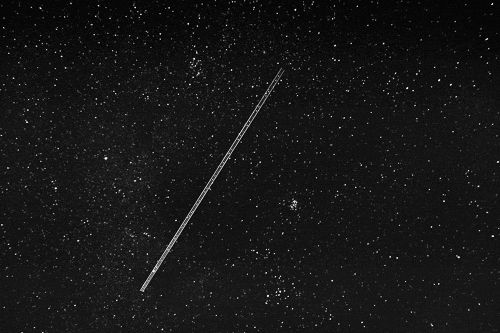Monstrous-mind - The Monster Mind

More Posts from Monstrous-mind and Others
A Mesmerizing Model of Monster Black Holes
Just about every galaxy the size of our Milky Way (or bigger) has a supermassive black hole at its center. These objects are ginormous — hundreds of thousands to billions of times the mass of the Sun! Now, we know galaxies merge from time to time, so it follows that some of their black holes should combine too. But we haven’t seen a collision like that yet, and we don’t know exactly what it would look like.

A new simulation created on the Blue Waters supercomputer — which can do 13 quadrillion calculations per second, 3 million times faster than the average laptop — is helping scientists understand what kind of light would be produced by the gas around these systems as they spiral toward a merger.
The new simulation shows most of the light produced around these two black holes is UV or X-ray light. We can’t see those wavelengths with our own eyes, but many telescopes can. Models like this could tell the scientists what to look for.
You may have spotted the blank circular region between the two black holes. No, that’s not a third black hole. It’s a spot that wasn’t modeled in this version of the simulation. Future models will include the glowing gas passing between the black holes in that region, but the researchers need more processing power. The current version already required 46 days!

The supermassive black holes have some pretty nifty effects on the light created by the gas in the system. If you view the simulation from the side, you can see that their gravity bends light like a lens. When the black holes are lined up, you even get a double lens!
But what would the view be like from between two black holes? In the 360-degree video above, the system’s gas has been removed and the Gaia star catalog has been added to the background. If you watch the video in the YouTube app on your phone, you can moved the screen around to explore this extreme vista. Learn more about the new simulation here.
Make sure to follow us on Tumblr for your regular dose of space: http://nasa.tumblr.com.
🍂🍁💀

🔭🌃🌌

🍁🍂

🛰️🌌🪐☄️🍂🍁

Hubble Sees Possible Runaway Black Hole Creating a Trail of Stars
There's an invisible monster on the loose, barreling through intergalactic space so fast that if it were in our solar system, it could travel from Earth to the Moon in 14 minutes. This supermassive black hole, weighing as much as 20 million Suns, has left behind a never-before-seen 200,000-light-year-long "contrail" of newborn stars, twice the diameter of our Milky Way galaxy. It's likely the result of a rare, bizarre game of galactic billiards among three massive black holes.
The black hole lies at one end of the column, which stretches back to its parent galaxy. There is a remarkably bright knot of ionized oxygen at the outermost tip of the column. Researchers believe gas is probably being shocked and heated from the motion of the black hole hitting the gas, or it could be radiation from an accretion disk around the black hole. "Gas in front of it gets shocked because of this supersonic, very high-velocity impact of the black hole moving through the gas. How it works exactly is not really known," said van Dokkum.
This intergalactic skyrocket is likely the result of multiple collisions of supermassive black holes. Astronomers suspect the first two galaxies merged perhaps 50 million years ago. That brought together two supermassive black holes at their centers. They whirled around each other as a binary black hole.
Credit: NASA
🍁🍂🎃🍂🍁

Autumn Alley, Germany …..by Michael Boehmlaend
🍂🍁🍂🎃🌎









Beautiful ginkgo trees at historic Sungkyunkwan University.


🍂🍁🏔️🌨️🌌

Mark Basarab
-
 wisdoms-of-a-pothead liked this · 4 years ago
wisdoms-of-a-pothead liked this · 4 years ago -
 virtualfreaksharkalien-blog liked this · 6 years ago
virtualfreaksharkalien-blog liked this · 6 years ago -
 monstrous-mind reblogged this · 6 years ago
monstrous-mind reblogged this · 6 years ago -
 monstrous-mind liked this · 6 years ago
monstrous-mind liked this · 6 years ago -
 cozzyautum liked this · 6 years ago
cozzyautum liked this · 6 years ago -
 gjones7 liked this · 6 years ago
gjones7 liked this · 6 years ago -
 things-to-show-people reblogged this · 6 years ago
things-to-show-people reblogged this · 6 years ago -
 dream-aesthetic liked this · 6 years ago
dream-aesthetic liked this · 6 years ago -
 bombayart liked this · 6 years ago
bombayart liked this · 6 years ago -
 27-stories-up-blog liked this · 6 years ago
27-stories-up-blog liked this · 6 years ago -
 apolcat liked this · 6 years ago
apolcat liked this · 6 years ago -
 gross-grimm reblogged this · 6 years ago
gross-grimm reblogged this · 6 years ago -
 gross-grimm liked this · 6 years ago
gross-grimm liked this · 6 years ago -
 viviannagasp liked this · 6 years ago
viviannagasp liked this · 6 years ago -
 freaky-mind liked this · 6 years ago
freaky-mind liked this · 6 years ago -
 warboytroy reblogged this · 6 years ago
warboytroy reblogged this · 6 years ago -
 warboytroy liked this · 6 years ago
warboytroy liked this · 6 years ago -
 windchimelaugh reblogged this · 6 years ago
windchimelaugh reblogged this · 6 years ago -
 treesandbones liked this · 6 years ago
treesandbones liked this · 6 years ago -
 treesandbones reblogged this · 6 years ago
treesandbones reblogged this · 6 years ago -
 haysugizohay liked this · 6 years ago
haysugizohay liked this · 6 years ago -
 h3idi12sos liked this · 6 years ago
h3idi12sos liked this · 6 years ago
My ambition is handicapped by laziness. -C. Bukowski Me gustan las personas desesperadas con mentes rotas y destinos rotos. Están llenos de sorpresas y explosiones. -C. Bukowski. I love cats. Born in the early 80's, raised in the 90's. I like Nature, Autumn, books, landscapes, cold days, cloudy Windy days, space, Science, Paleontology, Biology, Astronomy, History, Social Sciences, Drawing, spending the night watching at the stars, Rick & Morty. I'm a lazy ass.
222 posts